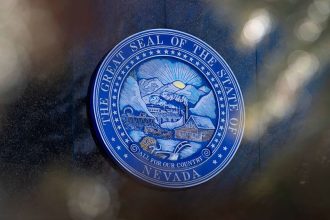NASHVILLE, Tenn. (WKRN) — The Tennessee Supreme Court is taking a hard look at the way lawyers are trained and licensed in the state, and whether the American Bar Association should continue to hold such a way.
In a Sept. 16 order, the court asked for public comment on reforms that could reshape the profession. These new reforms include the possibility that non-lawyers, paraprofessionals, or even AI chatbots could provide some of the legal help Tennesseans rely on.
📧 Have breaking news come to you: Subscribe to News 2 email alerts →
“If we are being honest, no one really likes lawyers,” Oliver Roberts, a practicing attorney and professor at Washington University School of Law, said. “They are really expensive, and you only talk to them when you have problems. But in Tennessee, we can totally flip that script by allowing legal tech companies to come in and provide direct legal services by using assistance of artificial intelligence thereby driving down the cost of lawyers and improving access to more legal representation.”
Tennessee isn’t exactly flooded with lawyers. The state ranks No. 31 nationally, which is fewer than three attorneys for every 1,000 residents.
The order cites growing concern about “legal deserts” in rural parts of Tennessee where residents struggle to find affordable representation.
“If we’re able to bring in more AI capabilities, more AI, Tennessee residents will pay a lot less for lawyers, and they will have them much more readily available,” Roberts said.
While many agree it could expand access to justice, some warn it can’t replace human judgment entirely.
“While AI can do a tremendous amount to lower barriers to justice, and I think it should in many instances, there’s still fundamental tasks that we still need to make sure there is still a human in the loop,” Kevin Frazier, an AI Innovation and Law fellow at the University of Texas School of Law, said. “That expertise should be left to the folks who have gone to law school, who have practiced, and who can make sure are representing their clients adequately.”
Tennessee isn’t alone. Courts in Ohio and Indiana are examining the ABA’s role in accreditation as part of a broader effort to address lawyer shortages.
⏩ Read today’s top stories on wkrn.com
“AI isn’t going to slow down,” Frazier said. “It’s only going to get better, and we should fully expect that the legal profession doesn’t put their head in the sand and wish it away, but instead, take their responsibility seriously of learning to be competent and literate with the respect to the use of AI.”
Public comments in Tennessee are due by March 16, 2026.
Copyright 2025 Nexstar Media, Inc. All rights reserved. This material may not be published, broadcast, rewritten, or redistributed.
For the latest news, weather, sports, and streaming video, head to WKRN News 2.









